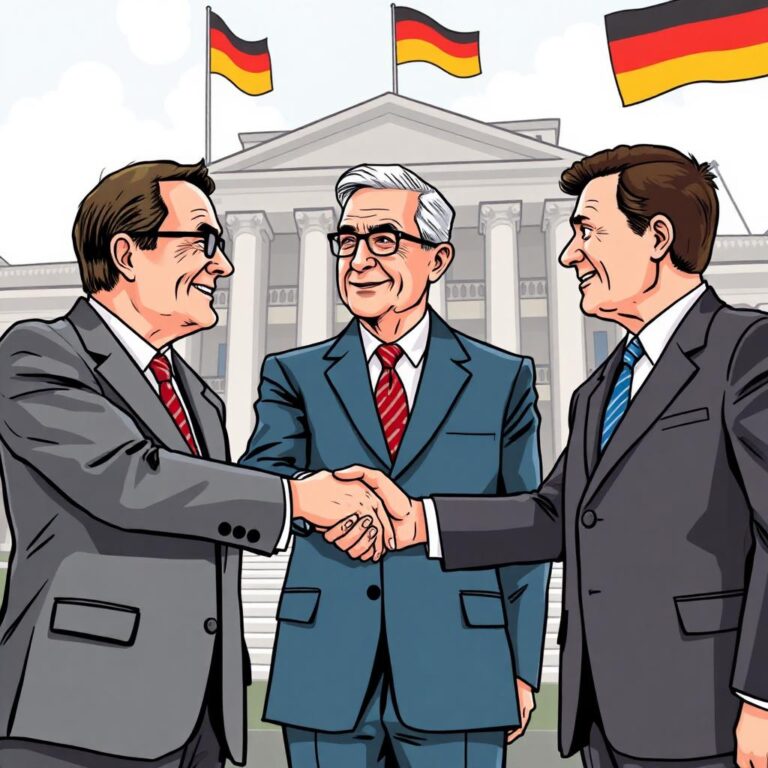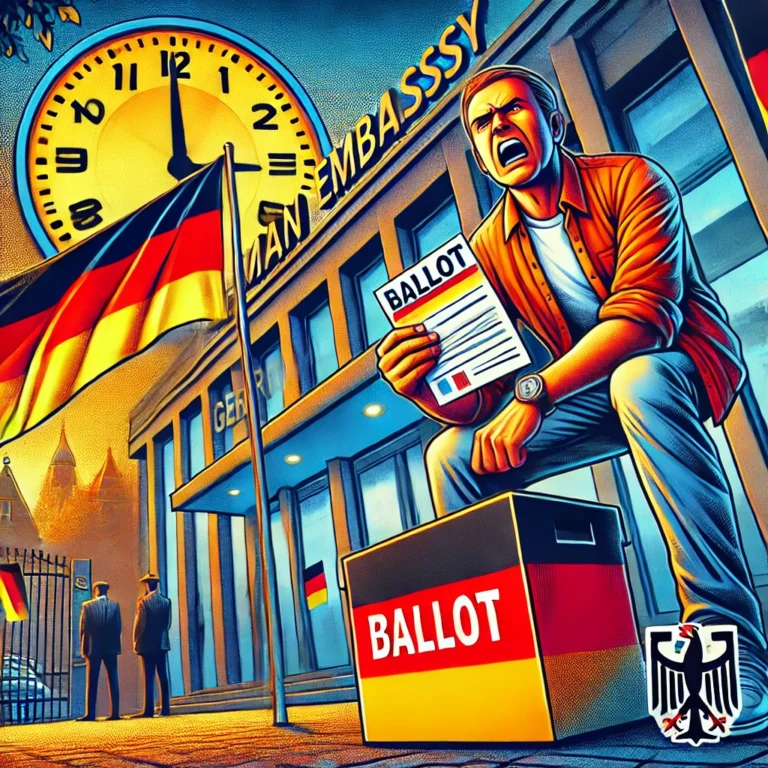
On February 23, 2025, Germany will hold a significant national election, which promises to shape the future of the country amidst a backdrop of political fragmentation and complex social issues. Various political parties are gearing up to contest, including the Social Democratic Party (SPD), the Christian Democratic Union (CDU), the Greens, the Free Democratic Party (FDP), and the far-right Alternative for Germany (AfD). These parties bring diverse ideologies and solutions to the table, seeking to address the demands of an evolving electorate.
Basic Election Info
Federal Elections in Germany will be held on 23 February 2025 to elect the 630 members of the 21st. Originally scheduled for 28 September 2025, the elections were brought forward due to the collapse of the governing coalition during the 2024 German government crisis. It is the fourth snap election in the history of post-war Germany after those in 1972, 1983 and 2005.
Register to Vote
In Canada, only persons listed in a voters’ register may vote. Germans staying abroad who do not have a registered domicile in Germany are called German expatriates. They are not automatically entered into a voters’ register. If German expatriates wish to participate in Bundestag elections, they have to submit a written application for entry into the voters’ register before each election. The deadline for entering Germans who live abroad in the electoral register is 2 February 2025. You must be on the electoral register to be able to vote in the Bundestag election on 23 February 2025.
Voting rights of Germans residing abroad
If all the other above requirements are met, Germans who have not occupied a residence for three months on Election Day (Germans residing abroad) but did occupy a residence or were normally resident in Germany for at least three months after attaining the age of 14 and no more than 25 years earlier are also entitled to vote. At their request, they are entered in the electoral register for their last place of residence in Germany and may vote by mail from abroad. It is important to request and return the mail ballot in time.
According to a recent amendment of the electoral law, German citizens residing abroad who do not meet these conditions (for example because they did not occupy a residence in Germany for three months without interruption during the past 25 years) may also request to be entered in the electoral register if for other reasons they are personally and directly familiar with political circumstances in the Federal Republic of Germany and are affected by them (such as persons employed abroad, cross-border workers, Germans residing abroad who are significantly involved in German politics and society through their activity in associations, parties or other organizations and describe their involvement). Here too, their last place of residence is responsible. If the person in question was never registered as a resident in Germany, the municipality with which he or she is most closely associated is responsible.
What Are Some Election Concerns
As Germany approaches the election, several critical issues loom large on the horizon. One significant concern is the ongoing energy crisis exacerbated by geopolitical tensions and dependency on foreign energy sources. The government’s struggle to transition to renewable energy while maintaining economic stability remains a focal point of debate. Furthermore, economic disparities between urban and rural areas continue to widen, leading to differing priorities among voters. The candidates will have to navigate these disparities and present a coherent vision for a unified approach to economic revitalization.
Another pivotal challenge for Germany is the integration of immigrants and refugees, a topic that has generated intense discussions since the migration waves of recent years. How parties plan to manage integration policies, social services, and community support will be instrumental in garnering votes. With the AfD capitalizing on anti-immigrant sentiment, mainstream parties need to articulate compassionate yet pragmatic solutions to foster social cohesion while addressing citizens’ concerns regarding security and social services.
The state of government in Germany also calls for attention. The recent coalition has been marked by tension and disagreements, leading to a perception of a “broken government.” Instances of ineffective governance could overshadow the achievements made in areas such as climate policy and social welfare reforms. Voters are likely to seek reassurance from candidates about their ability to work collaboratively to advance meaningful legislation and address public discontent regarding governance.
The election will also serve as a litmus test for the political landscape in Germany. Will traditional parties regain ground in a time of disillusionment, or will newer, more radical options gain further traction? With the polling indicating fluctuating public support, the outcome is uncertain. As the February date approaches, parties must focus on delivering clear, actionable messages to resonate with a diverse electorate while navigating the multifaceted challenges that their country faces.
Germany’s political landscape is undergoing a transformation as the backing for the ruling “traffic light” coalition declines, a situation worsened by the breakdown of the partnership between Chancellor Olaf Scholz’s Social Democrats (SPD), the Greens, and the liberal Free Democrats (FDP).
In contrast, the center-right Christian Democratic Union (CDU) and its sister party in Bavaria, the Christian Social Union (CSU), have consistently led in the polls. Meanwhile, the far-right Alternative for Germany (AfD) maintains its position as the second-largest opposition party in the country.
Currently, Chancellor Scholz’s SPD is significantly trailing behind the primary opposition party, headed by Friedrich Merz, in terms of voter approval.
Vice Chancellor Robert Habeck from the Greens is now a contender for the chancellorship; however, his party continues to struggle with support in the wake of the coalition’s collapse.
According to Euro News: German President Frank-Walter Steinmeier was requested to dissolve parliament by Chancellor Olaf Scholz after the leader’s ruling coalition collapsed. Read more here: https://www.euronews.com/my-europe/2024/12/27/german-president-dissolves-parliament-and-announces-february-election-date
Who is Friedrich Merz?
Friedrich Merz is a prominent German politician and lawyer, known for his role as the leader of the Christian Democratic Union (CDU), one of Germany’s major political parties. Born on November 11, 1955, in Brilon, North Rhine-Westphalia, he has a background in law and economics and has worked in various capacities within the finance sector, including as a partner at a law firm and as a member of the supervisory board of large companies.
Merz’s political career includes a significant tenure in the Bundestag (the German federal parliament) from 1994 to 2009, where he held various leadership positions, including the deputy leader of the CDU/CSU parliamentary group. After a period away from frontline politics, he made a political comeback and was elected as the CDU leader in January 2022, succeeding Armin Laschet.
As the head of the CDU, Merz has advocated for traditional conservative values, focusing on economic reform, security, and maintaining a strong national identity. His leadership style is often characterized by a commitment to fostering party unity and strengthening the CDU’s position in light of emerging political challenges, particularly from the far-right Alternative for Germany (AfD) party and shifts in the political landscape.
Disclaimer: This information was obtained from online sources and may not be current. Please verify this information before registering as a voter or making any decisions regarding your choice of candidates.








